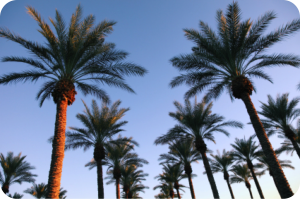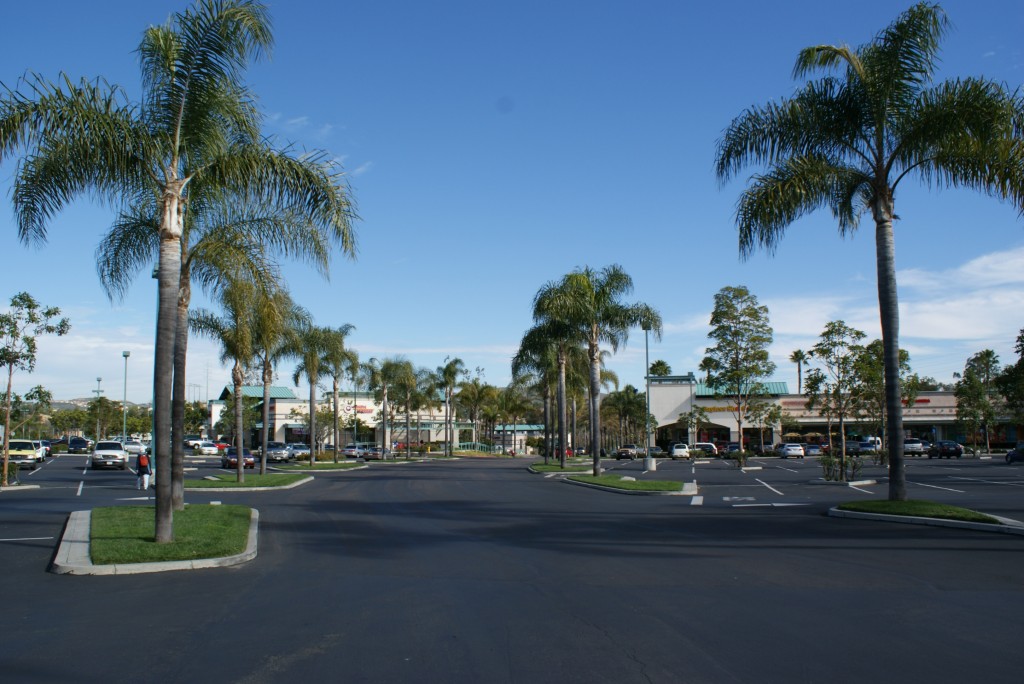Palm trees require adequate fertilization to prevent nutritional deficiencies and disorders.

Unlike woody broadleaf trees (Dicots), palm trees (Monocots) elongate their trunks first before growing upwards. Due to this unique difference, they are not able to change their trunk diameter after they grow upwards and are not able to repair damage to their trunks (which is why using climbing spikes on Palms is harmful). Having an adequate supply of nutrients and water during the elongation period is crucial to allow the palm to fully develop its trunk diameter. Furthermore, palm trees require micro-nutrients that may not be adequitly available in our San Diego soils and vary in availability due to pH levels.
Although the name implies they are small, micro-nutrients have a huge impact on the palms health. Deficiencies in micro-nutrient levels can cause chlorosis (frond yellowing), necrosis (frond death or die-back), frizzle top (new fronds developing stunted, chlorotic, weak, or necrotic streaks), trunk penciling, trunk constriction, and predispose the palm to infestation from pests and fungi. An analysis of palm species, soil type, pH levels, and irrigation type/frequency will determine supplemental nutrients required to maintain a healthy and pest-free palm.
 Fertilization Program Includes:
Fertilization Program Includes:
- Analysis of Current Soil Levels to Determine Proper Palm Planting Depth
- Analysis of Irrigation to Determine Best Frequency and Duration
- Soil pH Analysis
- Complete Fertilizer with Palm Specific Micro-Nutrients
- Arborist Monitoring of Palms Throughout the Year
To sign up for our palm tree fertilization program, please fill out the Request Service Form, and an Arborist will evaluate your palms and create a free estimate to keep your palms green and healthy.

